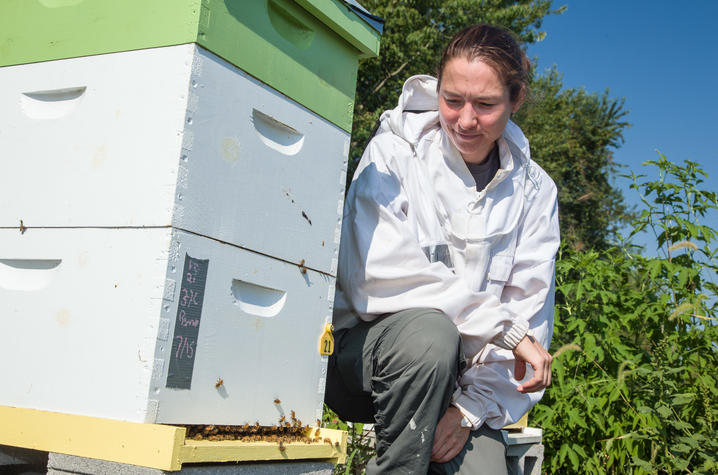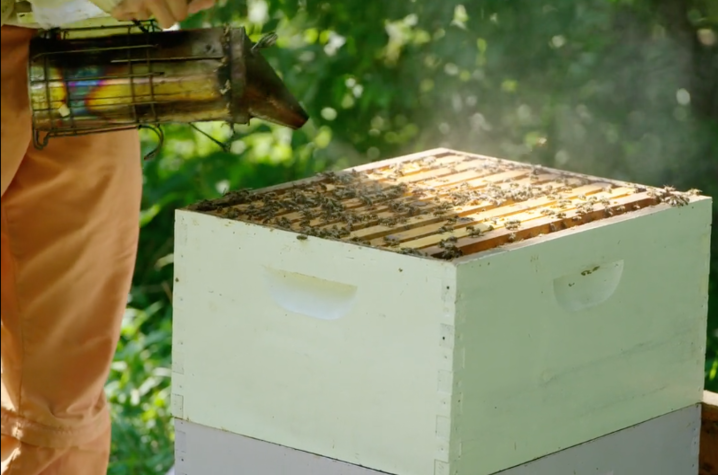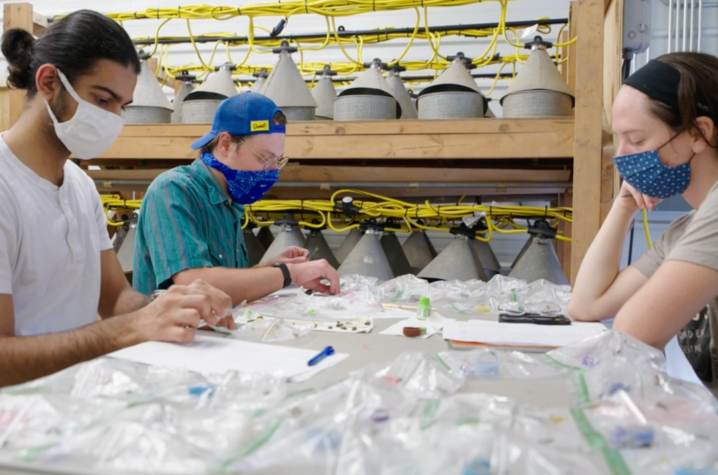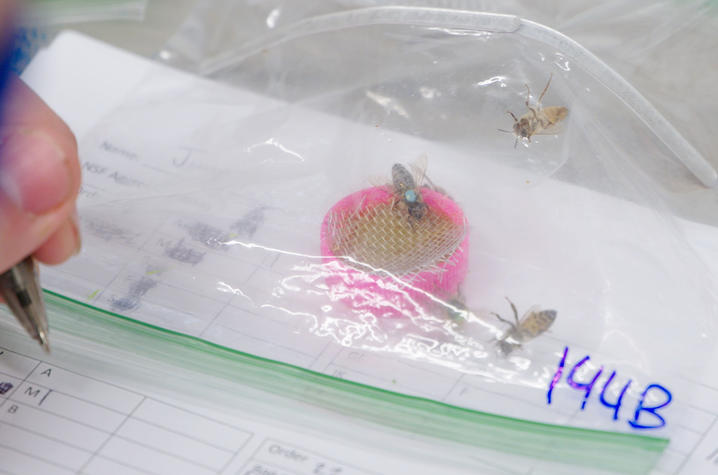NSF-funded honeybee research explores lifelong social impacts
To view captions for this video, push play and click on the CC icon in the bottom right-hand corner of the screen. If using a mobile device, click on the "thought bubble" in the same area.
LEXINGTON, Ky. (Aug. 10, 2022) — Clare Rittschof, Ph.D., is the recipient of the National Science Foundation’s (NSF) prestigious Faculty Early Career Development (CAREER) Award for her project titled “Signal to Noise: How Complex Social Information Regulates Brain Genomics and Behavior.”
The honor is one of the “most prestigious awards in support of the early career-development activities of teacher-scholars who most effectively integrate education and research within the context of their organization’s mission,” according to the NSF.
The award will provide Rittschof, associate professor of entomology in the University of Kentucky College of Agriculture, Food and Environment, with $1.1 million over five years to study social interactions between bees and how social experiences impact the bee brain. These studies will clarify how social experiences affect the brains and behaviors of humans and other animals.
“There are a lot of examples in humans, for example, where an interaction with a caregiver, or a teacher, or maybe even a traumatic experience has long lasting impacts on mental health, physiology, behavior throughout life,” said Rittschof. “And one major puzzle is to understand why certain social experiences have lifelong positive or negative impacts, and others are easily reversed. We’re addressing those questions using the honey bee, which is actually a really fun organism to study social interactions — they have these very complex societies.”
Rittschof is not only providing examples for her students, she’s giving them hands-on experience in a lesser-known area of agriculture, one beehive at a time.
“There are a lot of hooks that I think can grab the attention of young people and provide opportunities to show them the types of careers they could have in agricultural STEM. And so for that work, we're doing a few different things. One is to bring beekeepers into our research program,” she shared.
The funding through this award is critical for the program’s future, helping to fund undergraduate and graduate students alongside postdoctoral associates. Rittschof has big plans for the program, including expanding into area high schools and providing a personal connection to a career.
“In terms of impact on students, there’s evidence that most students choose a career based on knowing somebody who does that career. We’re developing some programming for high school students where we can bring them on campus for a two day or so workshop where they can meet different people that have agricultural careers and do some networking,” she said. “And then they can also interact with the researchers that are on campus and see that side of STEM and possibilities for agriculture.”
Rittschof recognizes the community of colleagues on and off campus that have helped her achieve this professional goal. UK faculty include Dan Potter, Reddy Palli, Erin Haramoto and Jen White in the College of Agriculture, Food and Environment; Pat Sullivan in the UK College of Medicine; Jeremy van Cleve and Robin Cooper in the UK College of Arts and Sciences; and state apiarist Tammy Potter.
“One of the things in the College of Ag that we do is we work in an Extension context with the community. That work provides another large network of people that are really integral to getting research done, and integral to this CAREER award,” she said.
Research reported in this publication was supported by the National Science Foundation under Award Number 2045901. The opinions, findings, and conclusions or recommendations expressed are those of the author(s) and do not necessarily reflect the views of the National Science Foundation.




As the state’s flagship, land-grant institution, the University of Kentucky exists to advance the Commonwealth. We do that by preparing the next generation of leaders — placing students at the heart of everything we do — and transforming the lives of Kentuckians through education, research and creative work, service and health care. We pride ourselves on being a catalyst for breakthroughs and a force for healing, a place where ingenuity unfolds. It's all made possible by our people — visionaries, disruptors and pioneers — who make up 200 academic programs, a $476.5 million research and development enterprise and a world-class medical center, all on one campus.




